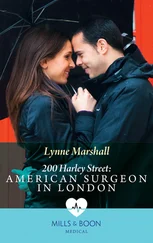The woman who's no longer my friend may dislike me, and I can't know for sure the reasons for her alienation, I can only guess at them. I like some friends less and less, when their bad or good habits stop being charming. I once left a man and didn't have a reason, then I fell under the spell of another, but I can't gather up in a basket the waxings and wanings of my affections, toward men and women, people have come and gone, I come and go, but if I could count up everyone in my life, I might be better prepared to leave it, knowing its erratic sums and scores, though my theory is disputable. I dispute it regularly, as when, for instance, I take an object apart and look at its innards scattered on the floor without sense, or when I labor to achieve nonsense. Lately I've been remembering the first time I had sex, an incomplete, unsatisfactory act, he was years older and confused, as confused by one as I was by doing it, as I would have said then, and I recall the night but not him vividly. I rejected him soon after, without any subtlety or concern for him, as had as the sex was. Any passion is better than none, I remind myself.
Lunch is eaten alone in the room that isn't for sleeping, and like breakfast and dinner, there is a rotation of menus, so that every two weeks the kitchen helpers might place tunafish, cheese, or egg salad sandwiches, for the vegetarians who eat fish and who are not lactose intolerant, in the bags, or a spinach pie, there is a variety of salads, carrots, celery, beets, tomatoes, romaine lettuces, hummus and other dips for the raw food, steak or roast beef sandwiches for the meat-eaters, and many kinds of soup, creamy mushroom, beef and barley, chicken, vegetable, and all of these may be in your lunch hag depending upon preferences and dietary needs, and there is dessert, freshly baked cookies or cakes, though the vegetarians complain that their desserts are less luscious than the meateaters', but there is fruit for everyone, and, especially when it is in season, fruit is delicious. Some invite others to join them. I never do, because lunch would resemble breakfast, with a similar cast of characters, and it could further damage my day, since the presence of others is capable of disrupting whatever headway I aspire to make. Occasionally, I want the Count to join me, his stories and mystery don't seem diversionary, there are rumors spread about his eccentric and illustrious past, about his wife, who might have been murdered or is a hermit, about his belief that human history's two best inventions are time and reason, but he is asleep at noon, at rest in timeless dreams. So I keep the lunch hour to myself, open for whatever occurs to me, and to eat it when and how I want. Each time lunch arrives, I decide I won't look inside the brown paper bag in which it's brought, to sustain interest in its contents, even enrich the mystery and future pleasure it might contain, to maintain a lively desire, desire is life, for the meal that is usually the poorest of the day.
Today I heard the boy on the bicycle when often I don't, and instead of greeting the long-legged kitchen helper, I remained in my compromised chair and pretended not to notice how he placed the hag on the steps to my door, which was partly open, because I like fresh air or fear suffocation. Instantly, as he rode away, I regretted my decision, since he has beautiful eyes, long legs, and a sly smile, but if I engaged his smile, if I looked into his eyes, I might face an unruly element in my future. Lunch today was poor. It included an egg salad sandwich. I like eggs and don't subscribe to the contested dictum that eggs are harmful, the way many do, but I'd had eggs for breakfast, as did many of the others; there was also a sickeningly sweet apple juice and a thin tomato soup with spaghetti, cold, though it was in a thermos, soups always are, so it was surprising, but maybe the top of the thermos hadn't been screwed on tightly enough, yet when it is, I often can't open it. I like soup. Everyone could eat the tomato soup, unless the person was macrobiotic, disavowing the tomato for being too yin, one of a group designated as deadly nightshade, or someone was allergic to tomatoes or disliked tomato soup or felt, as I have felt, that it tasted like blood. I have, on occasion, alone and in company, choked on the clotted juice, though curiously, I can enjoy the taste of tomato soup, with cream or without, overcoming my initial visceral disgust to it, and even to the clotted juice, by substituting the mental idea that it tastes good or by repeating the phrase "it tastes good" to myself silently over and over. The tomato soup was suitable for almost all of the diets offered: low fat, dairy-free and vegetarian, dairy-free and meat eating, fish-eating vegetarian, non-red meat but not vegetarian and not dairy-free, anti-candida, and other plans. The head cook tries to find tasty, winning recipes or ways to use leftovers from dinner that all of us can eat, but in working to please or accommodate the residents all of her years here she has mostly been unsuccessful, especially as their requests for different diets has increased and residents' sensitivities to the world around them-the air they breathe, the objects they touch, the materials on the floor or on the walls-and their resistances to the many products human beings have invented to ease the stress of life have grown exponentially. During the time I have been in residence, which will extend into the future I have scant curiosity about, though I know it will be, in some ways, dissimilar from today and could be charged with potent events I would never have predicted, but which in some ways I hope for, because excitement can't be predicted, the cook has become uneasier, more frustrated by or unwilling to cater to the residents' demands, since they have blossomed in variety, vociferousness, and even self-righteousness, and she, like the Polish woman, wearies, exasperated. A flash of movement charges through her rail-thin body or a crease streaks across her startlingly pale forehead, deepening the line already engraved there, and she might quickly move to the sink or cross to the stove, where a pot is always nestled and steam always rises, to avoid a resident's need of her compassion.
The Polish woman sometimes winces when the telephone rings, which, because she is alone in the salon, she has to answer, forcing her to abandon me, lying under a soft pink or blue blanket with cream on my face, and this affects her schedule, since there may be another customer waiting, though only once was it the lusting man, but I continue to expect him, or even hope he'll return, because the prospect is exciting, especially his presence, dark and brooding, and her response to him, whether she will allow him to have her or not, or continue to keep him waiting until it's the right time for her, since she may lust for him, or maybe she takes greater satisfaction in attenuating her rejection of him. She might be delaying, even playing with him, and I could be resting on the couch inside the walls of the salon at the moment she finally tells him. But then what would happen. Sometimes the Polish woman expels a breath fraught with resentment, addressing some of what she omits in our routine conversations, but I don't think she would refer to herself as sensitive, the way my mother wouldn't.
I might throw the tomato soup into the toilet, since, with no one here to see it, I could easily do that, though I have qualms about doing it, even alone, when no one would see me. I dislike any self-enforced prohibition, but even an unimportant act might have consequences impossible to foresee, or problems I couldn't predict, since there are always problems, and some are surprises. People have become more sensitive over the years. Obesity, allergies, and food aversions have spread like wild flowers do in spring and summer over Virginia's countryside, which has the greatest number and variety in the U.S., belying the countryside's otherwise homogeneous genetic human population, though there are always differences among people. The environment, a word I find somewhat objectionable because it's bland but whose use is endemic and impossible to ignore or avoid, has become more poisonous, or toxic, and there are new viruses and diseases dotting the human field, while old ones disappear, and allergies and sensitivities may be the onset of still unknown, more virulent plagues, as this is the time Stephen Jay Gould named "the age of bacteria," when "maximal bacterial simplicity" dominates man or humans. The unknown is conveniently, conventionally, more virulent than the known, and it is exciting, which is why some people think about the future, since it might also, in addition to what life always is, be new, though I'm not very interested in what will come after me, but I can imagine becoming less inured to it just before I die, since I won't be able to have and see it, and the inability to know it will probably provoke a profound desire to live.
Читать дальше












